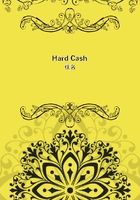
第9章
That is such a _plain_ thing to do; gives the other side the laugh as well as the race. I have heard a stretcher or two told, but I saw none broken. (Puff.) Their boat is the worst I ever saw; it dips every stroke.
(Puff.) Their strength lies in the crew. It was a good race and a fair one. Cambridge got a lead and kept it. (Puff.) They beat us a yard or two at rowing; but hang it all, don't let them beat us at telling the truth, not by an inch." (Puff.)"All right, old fellow!" was now the cry. One observed, however, that Stroke did not take the matter so coolly as Six; for he had shed a tear getting out of the boat.
"Shed a fiddlestick!" squeaked a little sceptic.
"No" said another, "he didn't quite shed it; his pride wouldn't let him.""So he decanted it, and put it by for supper, suggested Edward, and puffed.
"None of your chaff, Six. He had a gulp or two, and swallowed the rest by main force.""Don't you talk: you can swallow anything, it seems." (Puff.)"Well, I believe it," said one of Hardie's own set. "Dodd doesn't know him as we do. Taff Hardie can't bear to be beat."When they were gone, Mrs. Dodd observed, "Dear me! what if the young gentleman did cry a little, it was very excusable; after such great exertions it _was_ disappointing, mortifying. I pity him for one, and wish he had his mother alive and here, to dry them."**Oh where, _and_ oh where, _was_ her Lindley Murray gone?
"Mamma, it is you for reading us," cried Edward, slapping his thigh.
"Well, then, since you can feel for a fellow, Hardie _was_ a good deal cut up. You know the university was in a manner beaten, and he took the blame. He never cried; that was a cracker of those fellows. But he did give one great sob, that was all, and hung his head on one side a moment.
But then he fought out of it directly, like a man; and there was an end of it, or ought to have been. Hang chatterboxes!""And what did you say to console him, Edward?" inquired Julia warmly.
"What--me? Console my senior, and my Stroke? No, thank you."At this thunderbolt of etiquette both ladies kept their countenances this was _their_ muscular feat that day--and the racing for the sculls came on: six competitors. two Cambridge, three Oxford, one London. The three heats furnished but one good race, a sharp contest between a Cambridge man and Hardie, ending in favour of the latter; the Londoner walked away from his opponent Sir Imperturbable's competitor was impetuous, and ran into him in the first hundred yards; Sir I. consenting calmly. The umpire, appealed to on the spot, decided that it was a foul, Mr. Dodd being in his own water. He walked over the course, and explained the matter to his sister, who delivered her mind thus--"Oh! if races are to be won by going slower than the other, we may shine yet: _only,_ I call it Cheating, not Racing."He smiled unmoved; she gave her scarf the irony twist, and they all went to dinner. The business recommenced with a race between a London boat and the winner' of yesterday's heat, Cambridge. Here the truth of Edward's remark appeared. The Cambridge boat was too light for the men, and kept burying her hose; the London craft, under a heavy crew, floated like a cork. The Londoners soon found out their advantage, and, overrating it, steered into their opponents water prematurely, inn spite of a warning voice from the bank. Cambridge saw, and cracked on for a foul; and for about a minute it was anybody's race. But the Londoners pulled gallantly, and just scraped clear ahead. This peril escaped, they kept their backs straight and a clear lead to the finish. Cambridge followed a few feet in their wake, pulling wonderfully fast to the end, but a trifle out of form, and much distressed.
At this both universities looked blue, their humble aspiration being, first to beat off all the external world, and then tackle each other for the prize.
Just before Edward left his friends for "the sculls," the final heat, a note was brought to him. He ran his eye over it, and threw it open into his sister's lap. The ladies read it. Its writer had won a prize poem, and so now is our time to get a hint for composition:
"DEAR SIR,--Oxford must win something. Suppose we go in for these sculls.
You are a horse that can stay; Silcock is hot for the lead at starting, Ihear; so I mean to work him out of wind; then you can wait on us, and pick up the race. My head is not well enough to-day to win, but I am good to pump the Cockney; he is quick, but a little stale--Yours truly, "ALFRED HARDIE"Mrs. Dodd remarked that the language was sadly figurative; but she hoped Edward might be successful in spite of his correspondent's style.
Julia said she did not dare hope it. "The race is not always to the slowest and the dearest." This was in allusion to yesterday's "foul."The skiffs started down at the island, and, as they were longer coming up than the eight oars, she was in a fever for nearly ten minutes. At last, near the opposite bank, up came the two leading skiffs struggling, both men visibly exhausted--Silcock ahead, but his rudder overlapped by Hardie's bow; each in his own water.